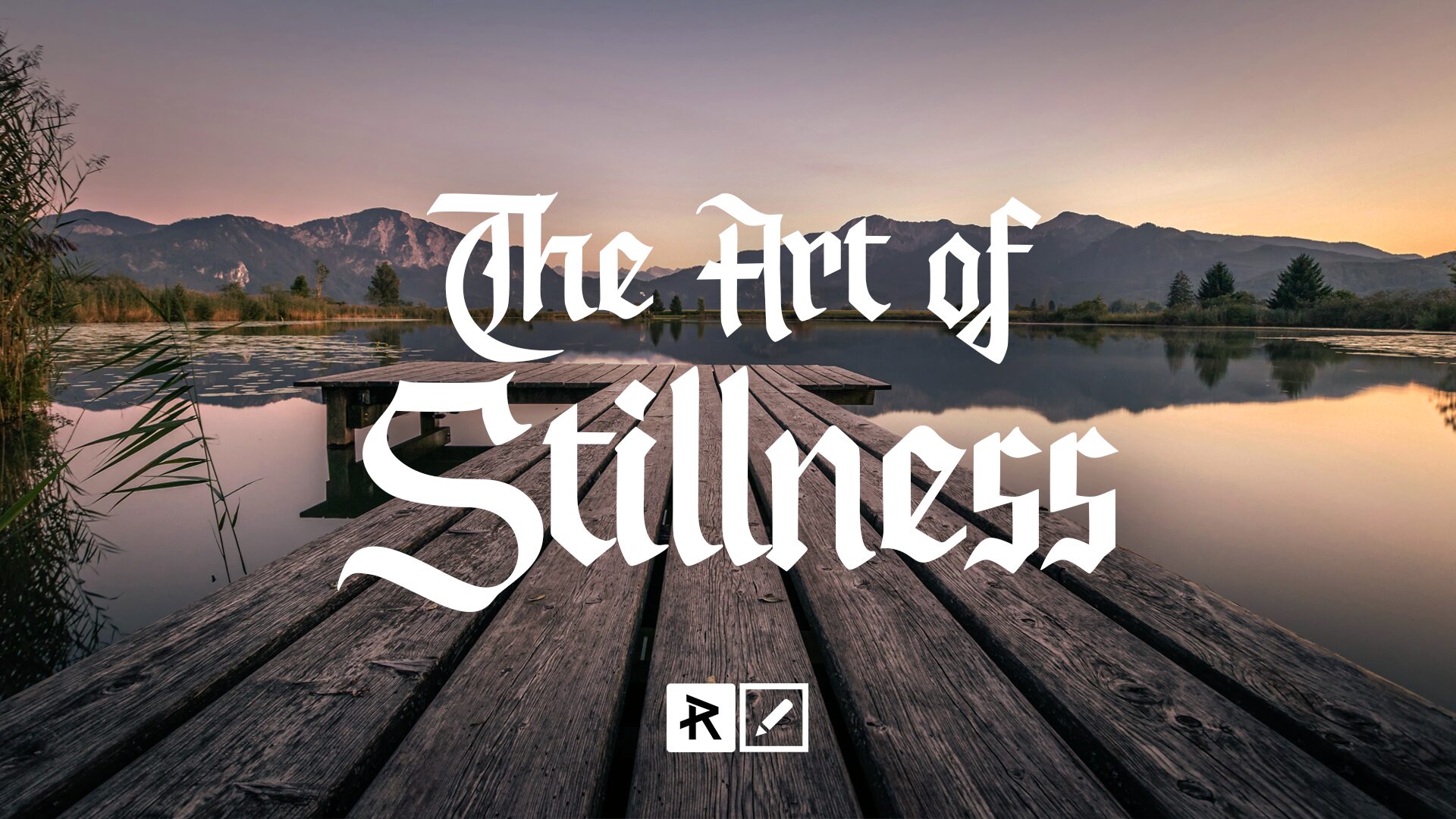
The Art of Stillness:
A Guide for Men Seeking God in Solitude
“Hurry is the great enemy of spiritual life in our day. You must ruthlessly eliminate hurry from your life.”
— Dallas Willard
Most men I talk to want to grow. We want clarity, confidence, and conviction in how we lead, love, and live. But the truth is, most of us are operating at full speed, constantly plugged in, and rarely—if ever—alone with our own thoughts, let alone with God.
The problem? Growth requires stillness. Stillness requires intention. And intention requires space.
Let’s talk about how silence, solitude, and stillness can shape you into the man God designed you to be.
Why Silence and Solitude Matter More Than Ever
Dallas Willard once said, “Solitude and silence are the most radical of the spiritual disciplines because they most directly attack the sources of human misery and wrongdoing.”
That’s not an overstatement. Solitude and silence are spiritual reset buttons. They strip away distractions, ego, and the noise of the world. When you make space to be with God, you rediscover who you are—and who you are not.
Jesus modeled this. He regularly withdrew to quiet places, even when people were demanding His attention (Luke 5:16). That wasn’t weakness—it was wisdom. He understood that private connection fuels public power.
In Silence, We Learn to Live in God’s Presence
For many of us, silence is uncomfortable. We instinctively fill the quiet with music, podcasts, texts, or tasks. But silence isn’t the absence of something—it’s the presence of Someone.
When I first tried to sit in silence for 10 minutes, I couldn’t last more than 3. My brain was buzzing. But over time, that space became holy. It’s where I started to notice how anxious I really was. It’s also where I began to hear God’s voice—not audibly, but internally—with more clarity than ever before.
Psalm 62:5 says, “For God alone, O my soul, wait in silence, for my hope is from him.” That kind of waiting doesn’t come naturally. But it’s deeply formative. It takes work and intentionality.
Stillness Makes Room for Listening
You can’t hear God while sprinting. Stillness trains you to slow down—not just physically, but mentally and spiritually as well.
In Exodus 14:14, God tells the Israelites, “The Lord will fight for you; you need only to be still.” Stillness is an act of trust. It’s admitting that you’re not the source of your strength, nor the solution to every problem.
Stillness also helps you become a better listener—to God, to your spouse, to your kids, and to your own soul. It slows down your reactions and sharpens your response.
How to Build Silence, Solitude, and Stillness into Your Day
This isn’t about escaping your responsibilities. It’s about showing up better for them. Here are some practical ways to start:
For Husbands and Fathers
- Wake up 15 minutes earlier than the rest of the house. Use that time for quiet prayer and stillness.
- Create a quiet corner with a chair, Bible, and journal.
- Power down your devices after dinner. Replace screen time with reflection.
For Young Men Becoming Leaders
- Start small. Set a timer for 5 minutes. Just sit. Breathe. Listen.
- Replace one scroll session a day with a solitude walk—no music, no phone.
- Use journaling to track your thoughts, prayers, and what you sense God is saying.
Why It Matters
- You’ll parent with more peace.
- You’ll lead with more wisdom.
- You’ll resist burnout and hustle culture.
- You’ll serve others without running dry.
A Simple Challenge: 15 Minutes for Formation
Here’s a challenge I’ve personally used and shared with other men:
- 5 minutes of stillness in the morning (before anything else)
- 5 minutes of silence midday (pause and reset)
- 5 minutes of solitude in the evening (reflect and release)
Do this for 30 days. Track how it changes your clarity, your stress levels, and your awareness of God.
Final Thoughts
Stillness isn’t about checking out of life. It’s about checking in with God, with yourself, and with what matters most. If you want to lead well, you must first listen well. And that starts in the quiet. Embracing stillness will bring you a sense of peace, clarity, and a deeper connection with God and yourself.
Questions for Reflection
- What would change if I led my life from a place of peace rather than pressure?
- Where in my day can I create intentional space for silence or solitude?
- What am I afraid I’ll discover in the stillness—and what might God want to heal there?